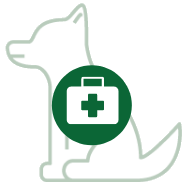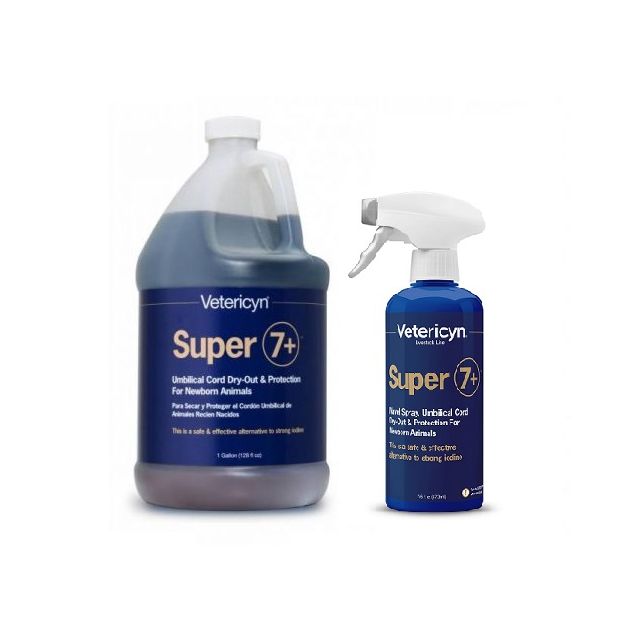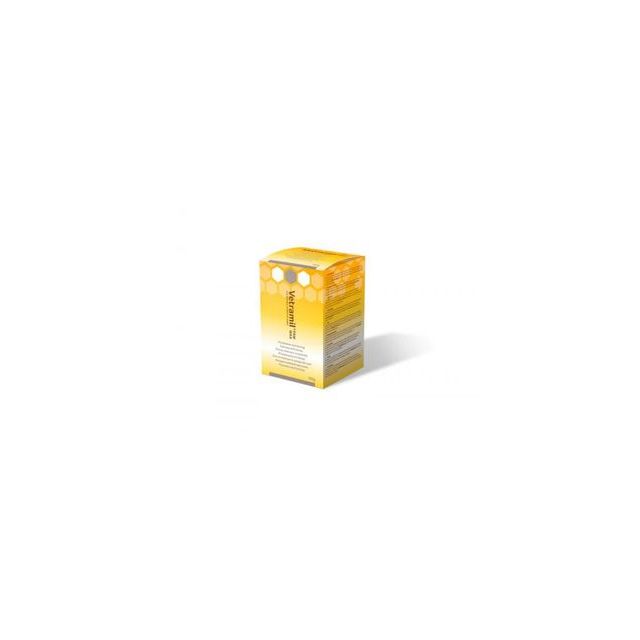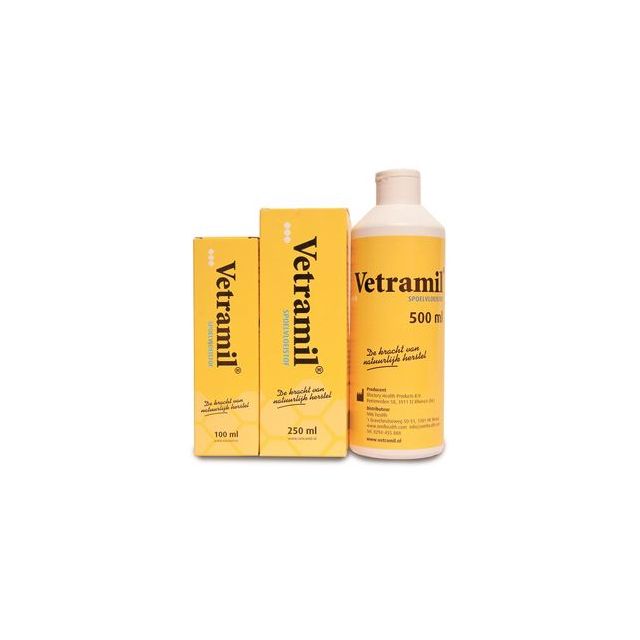First Aid for dogs
It is not for nothing that it is said "an accident happens in a small corner"... A collision with another dog, a sharp branch in the eye, or stepping on a thorn can happen quickly and cause a lot of inconvenience. For accidents, it is good to put together a first aid kit for your dog, so you have the various necessities at home if something happens and you can do something yourself before you, if necessary, can see the vet.
Small and large wounds in dogs
Wounds can occur from fighting with other dogs, an encounter with a cat, getting caught on something, stepping into something, and many other ways. Large or deep wounds and wounds where the edges gape may need to be stitched. Dirty wounds or wounds from fighting can also become inflamed. Always consult your veterinarian if in doubt about the proper wound care!
A wound is best first cleaned with for example Maxani Cleanser Spray or Vetramil rinsing fluid. Small and larger wounds and irritated skin can benefit greatly from honey ointment, such as from Vetramil or Dermiel. Honey ointment is soothing, mildly antibacterial, and supports wound healing. Calendula ointment is also soothing.
A separate category within wounds is the hotspot, a red, moist spot on the skin of your dog, which often spreads quickly and causes your dog a lot of discomfort. Usually, a hotspot itches a lot and sometimes it is very painful for your dog. It is important with hotspots to prevent your dog from licking, scratching, or biting the spot, for example by using a Medical Pet Shirt or neck collar. Also, a bandage on a hotspot on the paw prevents licking. However, make sure you do not bandage too tightly. The Trixie First Aid Kit contains all sorts of necessities, including gauze compresses and bandage. Honey ointment or Dermacool Hot-Spot Spray helps the skin heal.
Tick bites
Especially in the warmer months, after a walk, the chance that your dog will be bitten by a tick increases. A tick remover or tick twister is therefore indispensable in your first aid kit. To avoid having to fiddle after each walk, a product against ticks such as Advantix spot-on, Frontpro tablets or a Seresto collar is very handy.
A loose, torn, or ingrown nail
Nail problems occur regularly. Especially the thumbs and dewclaws are often 'victims' of accidents. Loose pieces of nail irritate with every movement and are best removed. This is not always easy and because it can be quite painful, it is also not always safe. Therefore, definitely seek help from your veterinarian if (the loose piece of) the nail is not very easy to remove. For an ingrown nail, cutting it is the solution. A fine nail clipper should definitely be part of your first aid kit.
Inflamed ears in dogs
If your dog scratches a lot at his ears or shakes his head, this may indicate an ear infection. This is almost always a reason for a vet visit. The vet can look inside the ear canal with an otoscope, determine the cause of the ear infection (such as bacteria, yeasts, or ear mites), and especially see if the eardrum is intact. Giving ear drops can be dangerous if the eardrum is damaged!
Cleaning a dog's ear is usually not necessary. The ears are supposed to be a bit greasy; the earwax helps to catch pathogens. However, healthy ears do not smell. If your dog really has dirty ears, use a safe ear cleaner like Clean Aural. For mild redness of the ear flap or ear canal, Dermiel ear drops based on honey can be soothing.
Eye infections in dogs
If your dog suffers from a 'tear streak' (wet discoloration of the fur from the corner of the eye along the bridge of the nose), then you can clean the eyes with a special mild eye cleaner like Bogacare Perfect Eye Cleaner. A vitamin A eye ointment like Ophtosan helps protect your dog's eyes.
If your dog squints with one or both eyes, the discharge is green-yellow, you see a change in the eye itself (such as bleeding, different reflection, haze, dull or brown spot, or uneven pupils) or if your dog is also unwell, then go to the vet.
When should you urgently go to the vet?
Many things you can solve at home or wait and see. But it is good to know what really are emergencies that you must immediately call the vet for consultation:
- Persistent vomiting.
- Severe lethargy or weakness, suddenly greatly reduced stamina.
- Pale mucous membranes (inside of lip).
- Inability to bear weight on one or more legs.
- Breathing difficulty.
- Trauma: for example, a traffic accident or a severe fight with another dog. Internal damage is not always visible from the outside.
- A non-progressing birth.
- Significant blood loss.
- An epileptic seizure that lasts longer than 10 minutes or multiple seizures per day.
- Suspicion of poisoning or after swallowing a foreign object.
- Unable to urinate.
If you have a question about our products or about first aid for your dog, please contact us.




